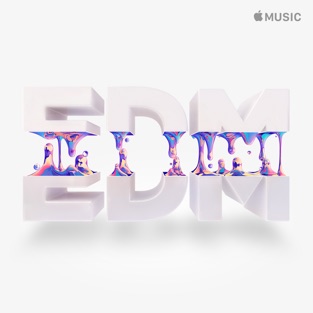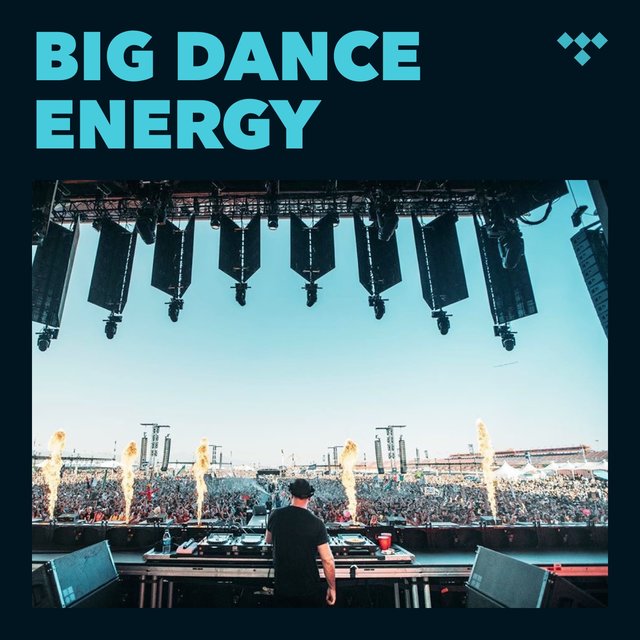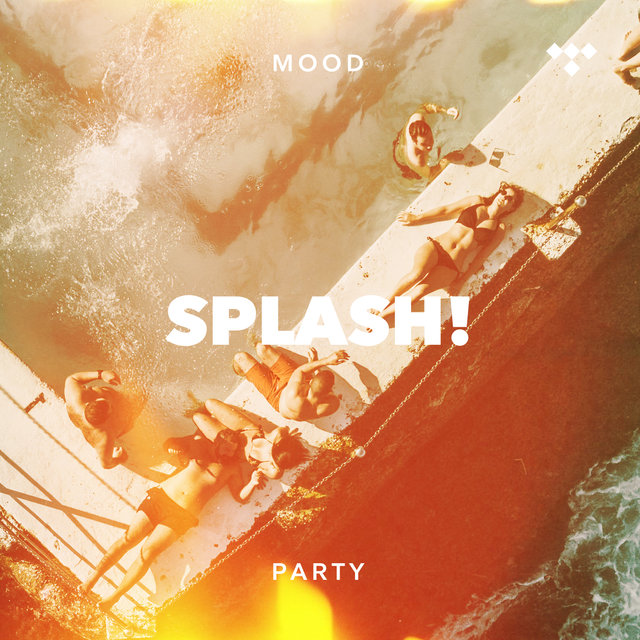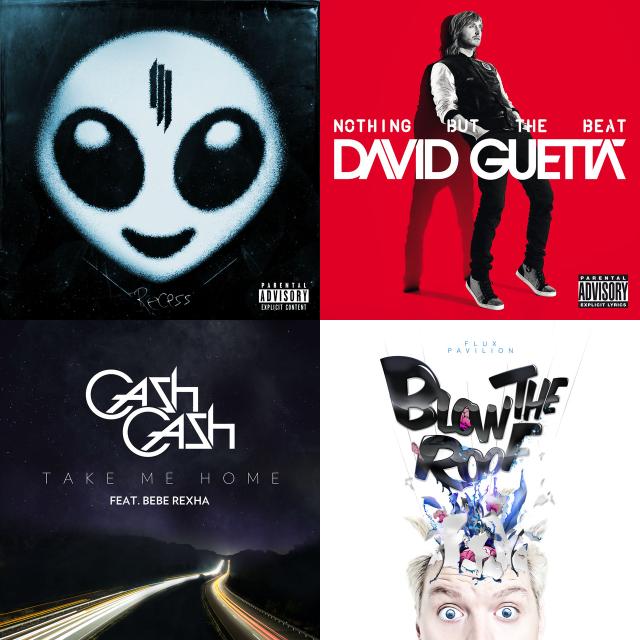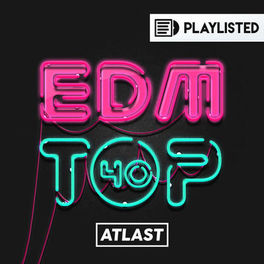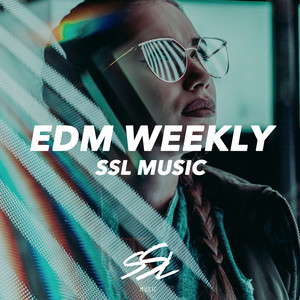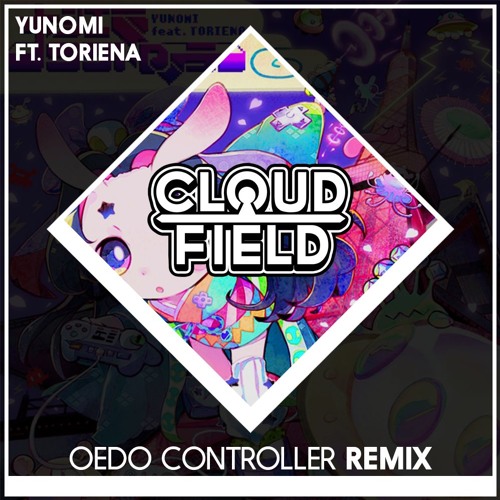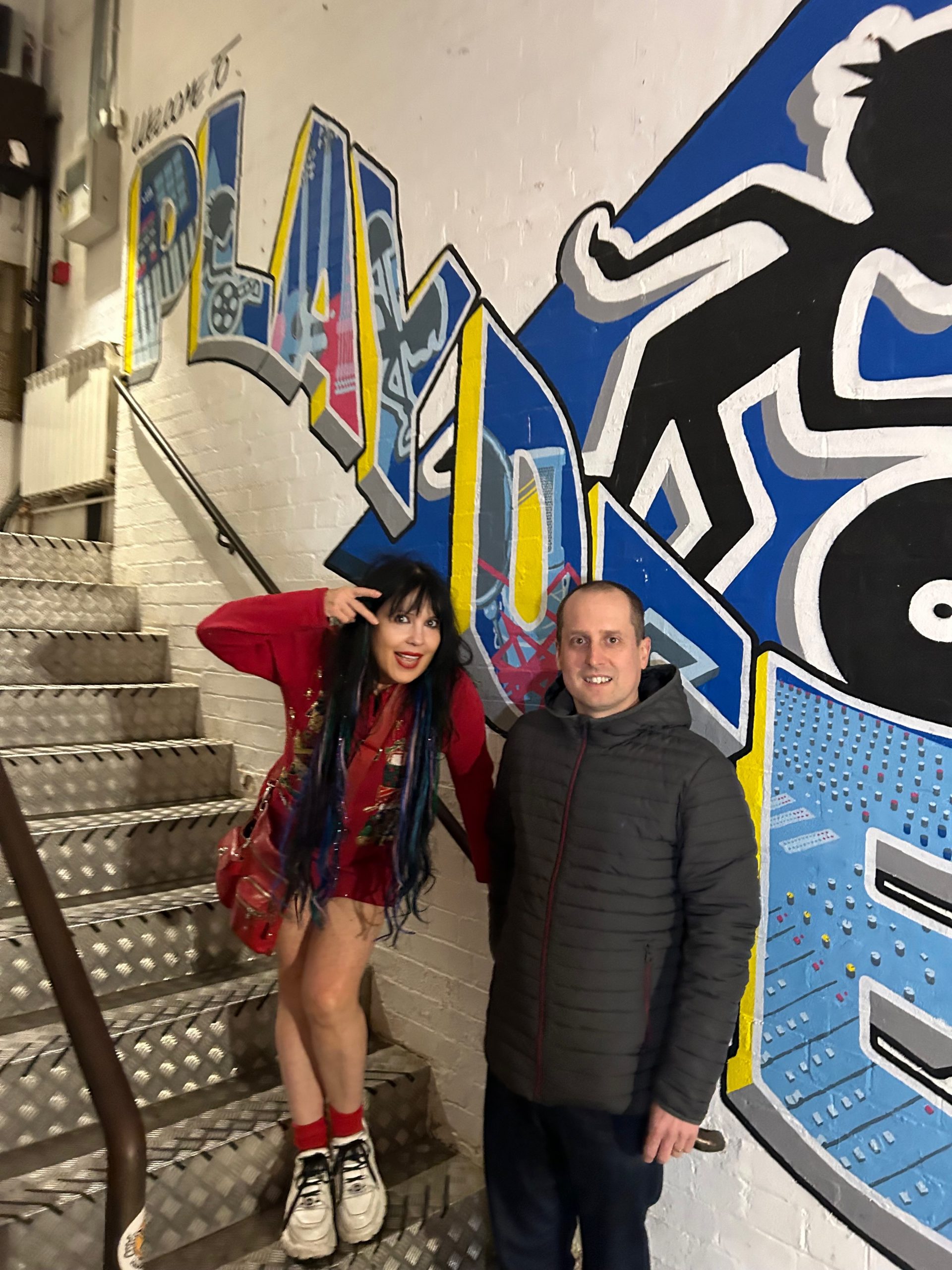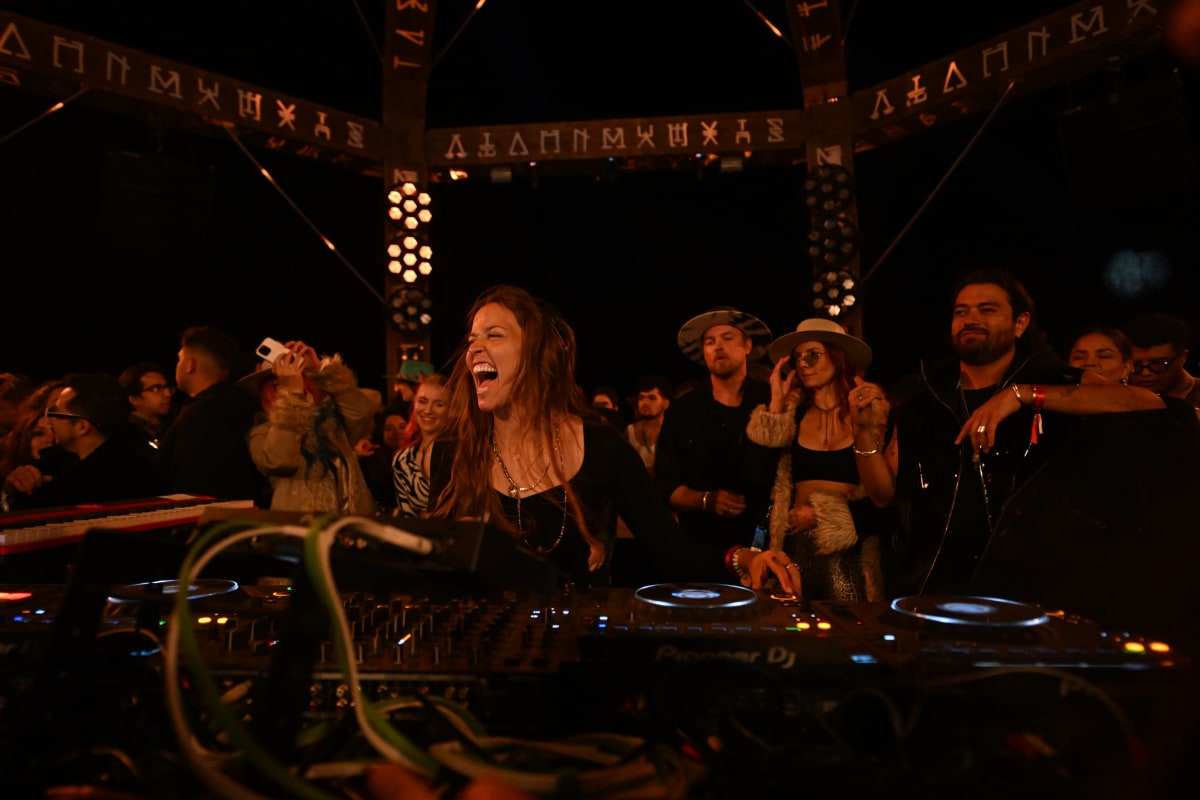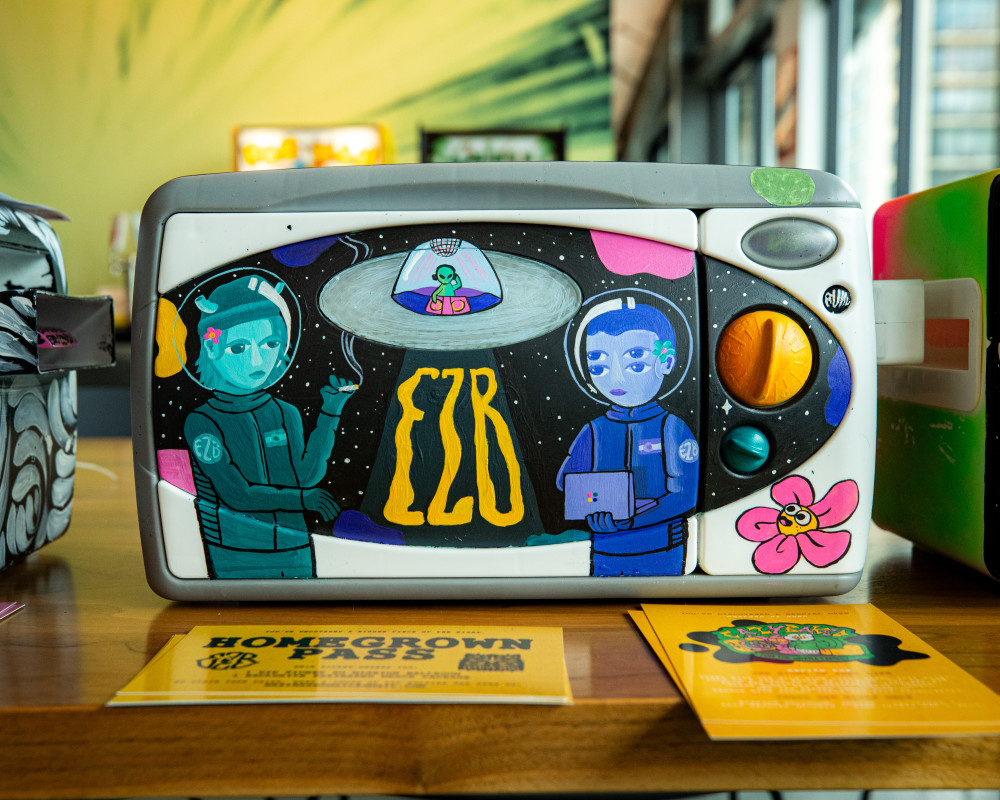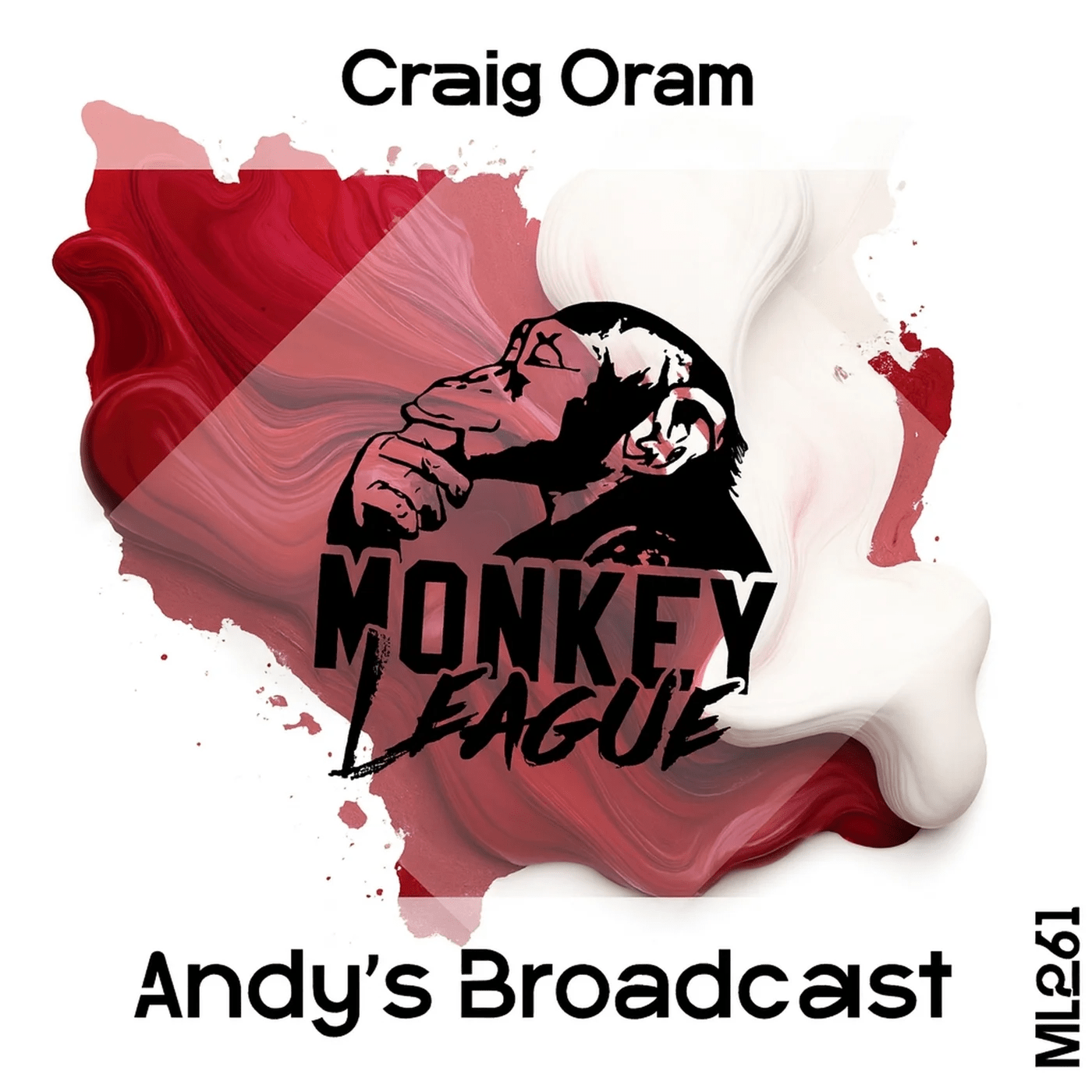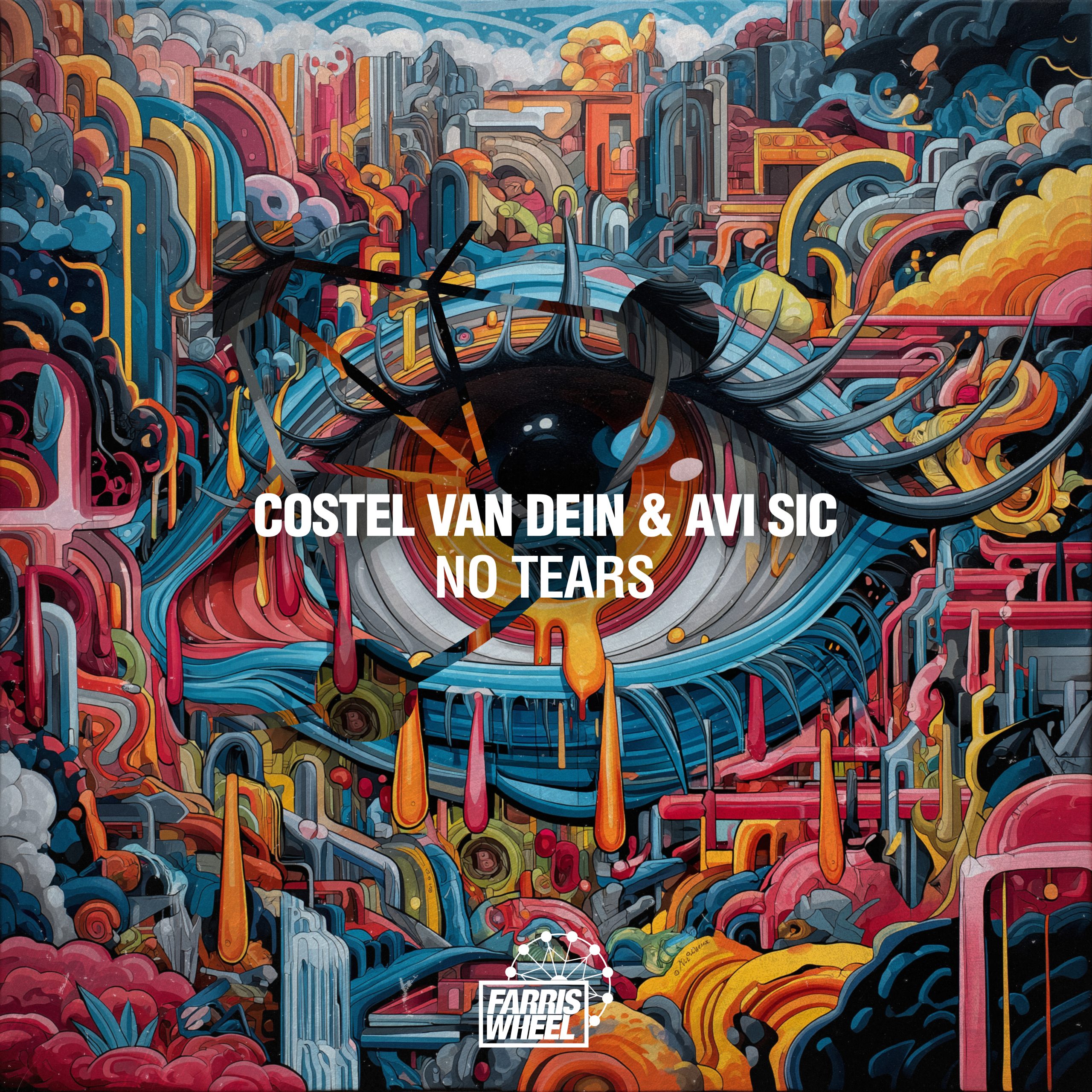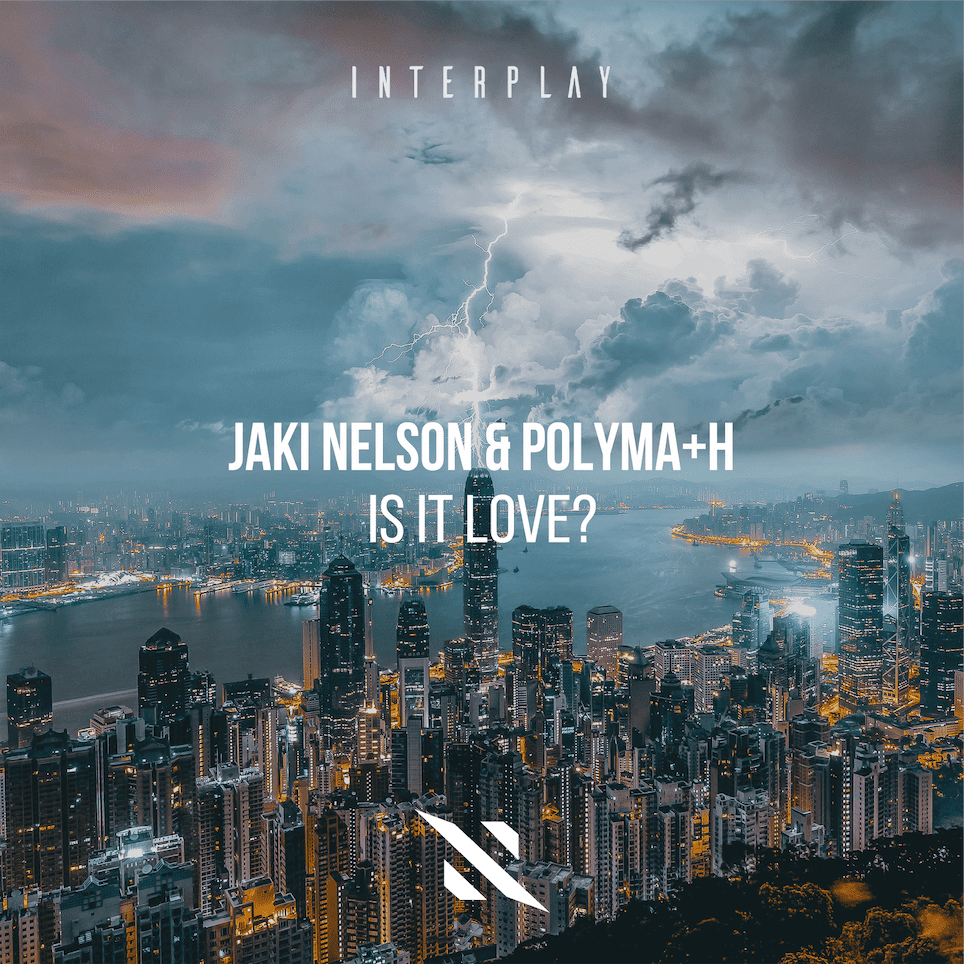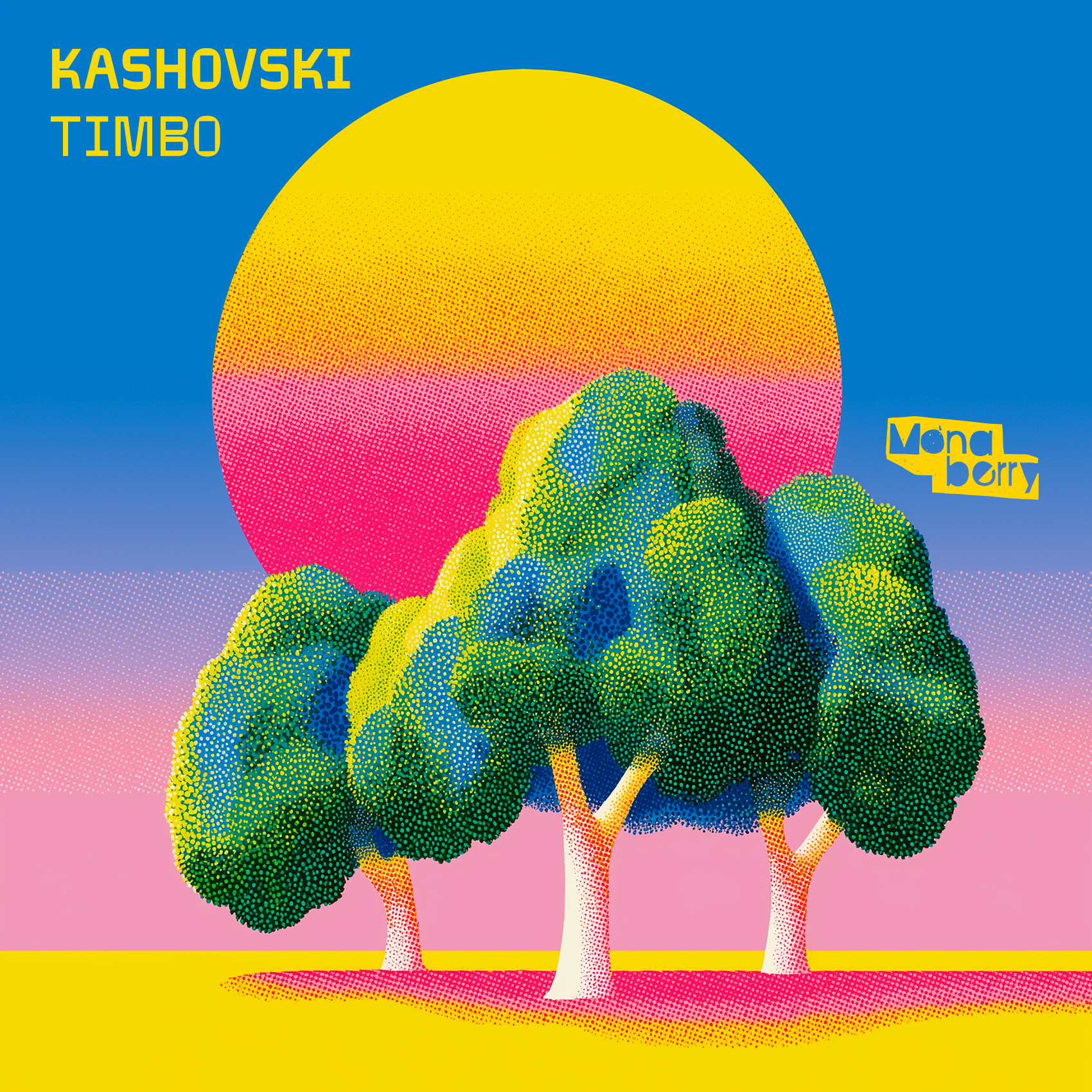Hospital Records Co-Founder Chris Goss On Why “There’s Another Explosion” of Drum & Bass Coming
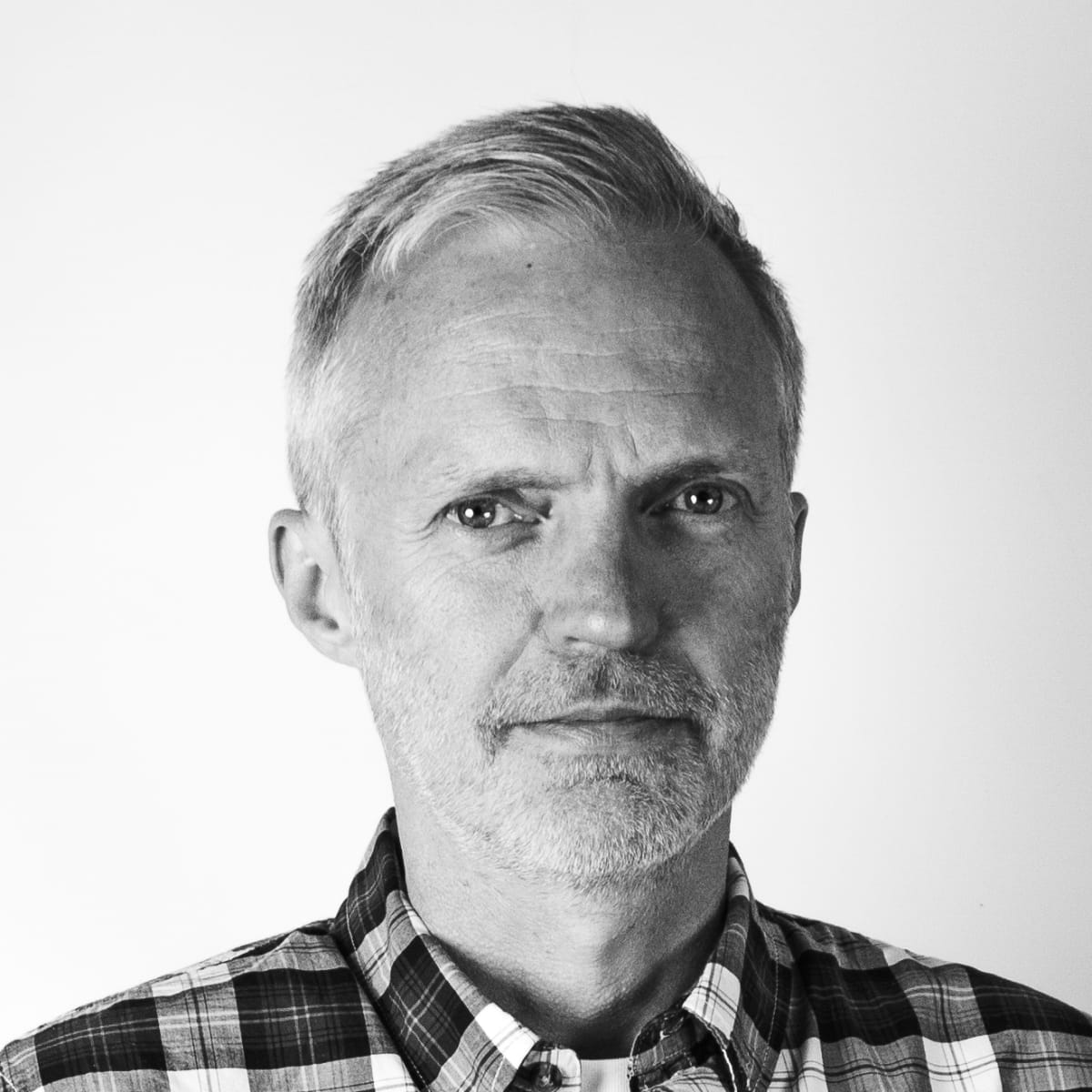
A sweeping interview with the influential Hospital Records exec, who believes that "there will be increased opportunities for drum & bass" for years to come.
The sounds and energy of underground drum & bass culture are emerging on the world's biggest stages—and the driving forces behind this uprise may surprise you.
Drum & bass has been inescapable for ravers lately, creeping its way into the DJ sets of many of the scene's most popular artists. Jaw-dropping clips of these moments have been going viral at a furious rate, leading to the time-tested genre's reascension as the next big sound in electronic music.
Whether drum & bass traditionalists like it or not, the hype is undeniable. Just ask Chris Goss, who has witnessed roughly three decades of its ebb and flow. As co-founder of the deeply influential Hospital Records imprint, he's able to capture the zeitgeist of the genre's early days.
Goss, who has enjoyed a profound and matchless view of the drum & bass community since the label's 1996 launch, tells us he's currently observing a massive upswing in the genre's global popularity. In fact, he believes we're experiencing "another explosion" of drum & bass.
As the genre and its unique culture continue to erupt across the world, EDM.com caught up with Goss to discuss the past, present and future of drum & bass.
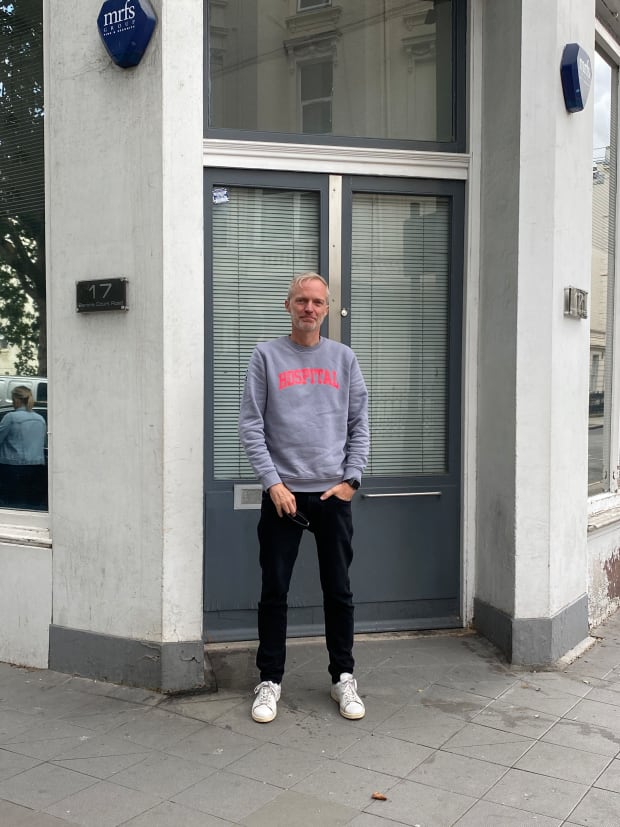
c/o Hospital Records
EDM.com: Do you think drum & bass is becoming more mainstream? Or does the genre still have an "underground" reputation to it?
Chris Goss: Drum & bass is the perfect example of something that you can genuinely celebrate as underground dance music. It always has been and it always will be.
That said, for those of us that work in it—whether we are producers, DJs, labels, writers or clubbers—we are very happy to kind of have those spikes when there is more attention and good energy surrounding it.
I suppose that it is more mainstream. I've seen so many of these mainstream moments over the years. It feels like they come and go maybe every four or five years. That's a very particular London or British kind of perspective. It's inevitable that there is quite a marked difference between the kind of awareness and appetite for this music, say from the U.K. and Europe to North America. And I guess, maybe to an extent over here, the phenomenon of EDM and EDM festivals and that kind of sound palette and sound design has kind of exploded in the last 10 to 15 years.
EDM.com: What are some of the factors you believe are influencing and fueling the popularity of drum & bass worldwide?
Chris Goss: I think right now, maybe what we're kind of seeing is that very kind of youthful energy, primarily through that dominant platform of TikTok. It's also short-form content—you're looking at audio and video content, which is often a minute, maybe two minutes. That also means that a lot of the music itself, when it's finally released, is really quite short. Which can be great.
Sometimes for me it might make it feel a little bit disposable. I feel like 90 seconds is a little bit short for a whole piece of music. But I get it. And I think the most important thing for me is that if this is another opportunity to shine a light on the tempo, the energy, the musical breadth, the global aspects to this music, then I'm all for it.
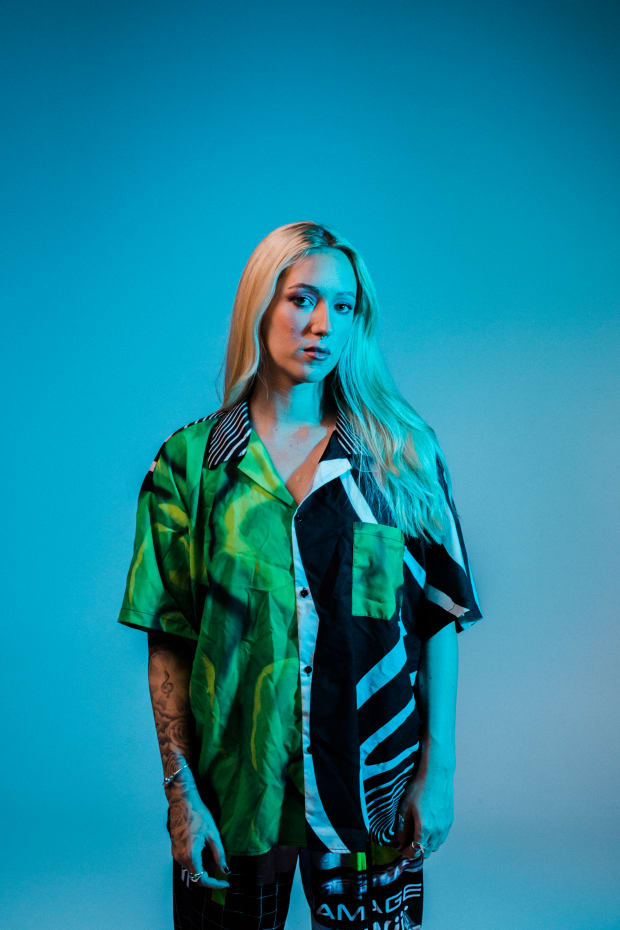
EDM.com: How do you think social media is changing how artists and labels approach the music?
Goss: We [at Hospital Records] embrace social media because, of course, you can't be working in the creative arts today without social media being an essential kind of communication platform for everything that you do. So we are fully involved in all of those platforms, because you have to be. I don't think we're better than that—we were lucky that as a team we have some very talented staff. We have some very young staff, who are continually coming up with new ideas and new strategies for our YouTube channel, our Instagram feed or our short-form content like TikTok.
And of course, within that you also have all of the artists, and every artist is different. Some of them naturally enjoy different platforms, and they respond to them in different ways. Some of them may be less honest, because a lot of producers and musicians and singers—irrespective of how young or old they are—some of them, it just doesn't sit with them. It's not what they're into. Their focus and their drive is the music, the writing, the production, the mixdown—that kind of dynamic. And a lot of them quite naturally kind of shy away from that.
Of course, that's when we as a label need to ensure that we can still do as good a job with all of the artists as we need to. Whether that's bringing other people to the table to kind of work with them on their social media strategy, or just letting them run away with it because maybe they've just got a whole bunch of great ideas themselves.
EDM.com: Do you think these short-form clips of drum & bass shows on social media are making the culture more popular?
Chris Goss: When people are watching clips and short-form content, particularly, say, on Instagram, on the one hand you have the super epic Tomorrowland things or like Drumcode, where it's huge crowds and the visuals are amazing and super, super epic. But what you're generally looking at is thousands of people holding up their phones filming something.
Now at a drum & bass party, you're going to lose your f***ing phone, if that's how you're going to rave. So the distinction tends to be the drum & bass part is actually the content where people are genuinely raving and dancing and having a great time. That's perfect for the platforms that we're talking about. If you just see 60 seconds of Hospitality at Printworks, or Critical at E1 or whoever it might be, that's a fun night out.
I think you're right—increasingly that kind of content as it continues to be shared, that's then exciting and inspiring another wave of young people who are new to the genre and are going, "Well, I want to be a part of that."
View the original article to see embedded media.
EDM.com: Besides the United States, which other countries do you think are pushing drum & bass culture or helping it emerge on a global scale?
Chris Goss: The key territories for us when it comes to our music being played and enjoyed by people are the U.K., North America, Germany, the Netherlands, New Zealand and Australia. They are the leading territories.
And then if you think about the live aspect, Holland and Belgium—they're small countries—but per capita they've got such established, huge drum & bass shows and festivals. You also have places like Czech Republic and Poland that are huge for drum & bass, and Croatia, where we do our Hospitality On The Beach festival. In New Zealand, a fairly unique kind of country for whom drum & bass music is essentially pop music, it's daytime radio music, which is quite rare and quite unique to that kind of territory.
And it's been like that for many, many years. Happily we've been receiving music globally, from people all over the world for many, many years now. We have a couple of artists in Brazil, and Brazil has been delivering the sort of artists to this genre for a long time. We're starting to see drum & bass music coming out of Mexico and Venezuela. There's always been a whole bunch of producers across Scandinavia. Of course, there are people in Japan, there are people across Southeast Asia.
We had a great new artist with us in London just two weeks ago. He's from Sri Lanka. So to be coming out of the Indian subcontinent, now that's really unusual. But he's great. He's called Irie. I think to an extent the global aspect of this music has never been more prevalent.
And that's obviously a huge strength because even if you just put to the side, maybe like the live side of it, to know that there are men and women making this music from pretty much every corner of the globe—that's it. That's really, really exciting. And I think some of that is also because the music has never been more accessible.
EDM.com: Who do you think are the key players or artists pushing the drum & bass scene? Who's really leading the charge right now?
Chris Goss: When it comes to even if I just think about brands, of course the DnB AllStars is pretty huge. They're really having a moment right now, and so there are artists that have come through their doors. I guess someone like Goddard, young artist who's just kind of exploded within about two years. You can look at someone like Nia Archives, or Piri & Tommy or PinkPantheress, that are maybe more out of that world of TikTok.
You can also look at artists like A.M.C or Critical Soundsystem. Obviously across Hospital we're blessed with all sorts of different artists right now, from P Money and Whiney, to Kings of the Rollers, to Flava D, to Solah, to Lens and a young woman called NIE we've just signed out of Bristol.
It's really exciting for us to see brand new young talent coming out of such an exciting landscape in Bristol, which is absolutely popping off for drum & bass right now. Bristol and London really are the two homes of this music from when it started back in the day. You know, you should also look at event brands like Rampage and Let It Roll.
Obviously, all of the different people that are smashing out of New Zealand and Australia. DJ Marky you've got out of Brazil, our artist Urbandawn out of São Paulo. And then what's super interesting in America is that there's another wave coming. We're lucky—I was literally on Zoom with him this morning, a guy called Winslow. He's based outside St. Louis. He's one of our artists who we've got a lot of belief in. He's an amazing producer and writer.
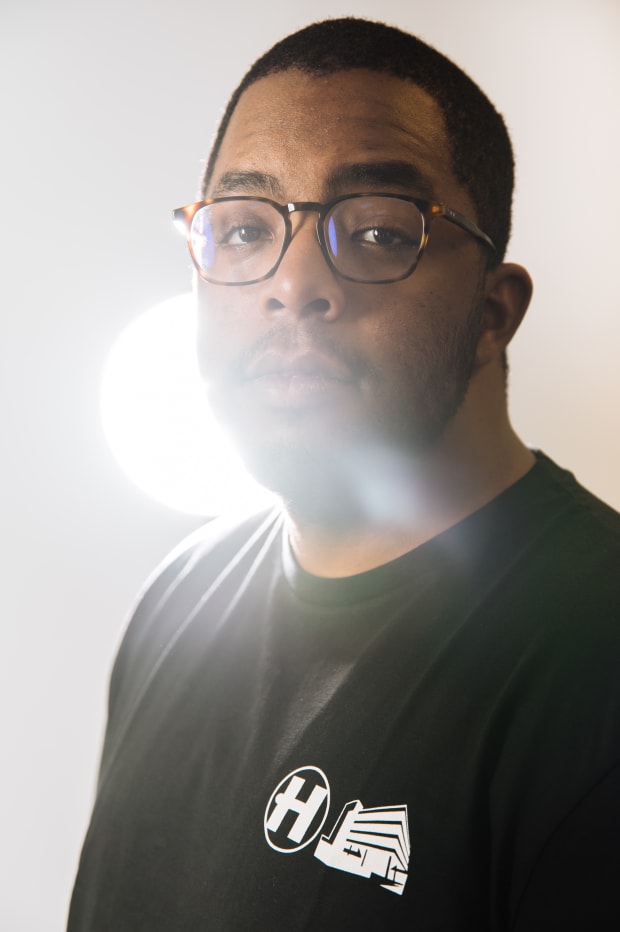
But then you can also look at some of the new generation of producers like, say, Justin Hawkes, or Boxplot or Echo Brown. And they are being supported by some of the long established club promoters in L.A., where they're hosting our show here on Friday at Fox in Hollywood. Or people like Stamina in San Francisco or the crew in Seattle and Union in San Diego.
There are so, so, so many people and I think it's fundamental to ensure that—particularly those of us that are most visible and most well-known in this genre—that we can elevate, encourage and support both the young and the established as best as we can. It shouldn't ever just be about, "Oh, who are the new kids on the block," because they would be nowhere if it weren't for the club promoters who had been doing this for 25 years. Or people like Drum&BassArena or the kind of magazines and websites and the writers who have always supported this music.
I hope that as we move through this year and into the next, everyone can recognize that collectively we can all enjoy this moment. And there there will be increased opportunities for drum & bass artists and people that love this music.
Editor's Note: This interview has been lightly edited for clarity.

